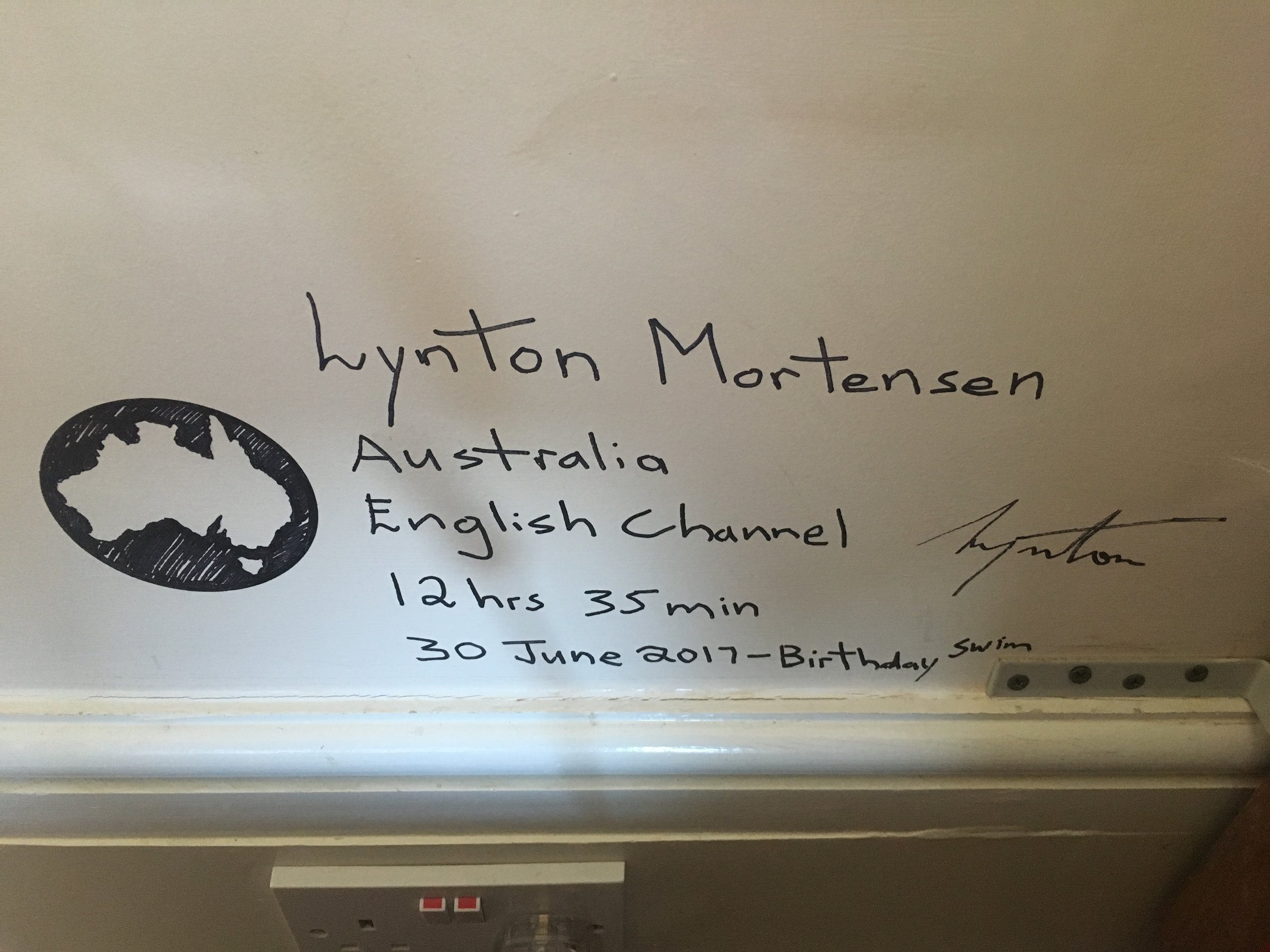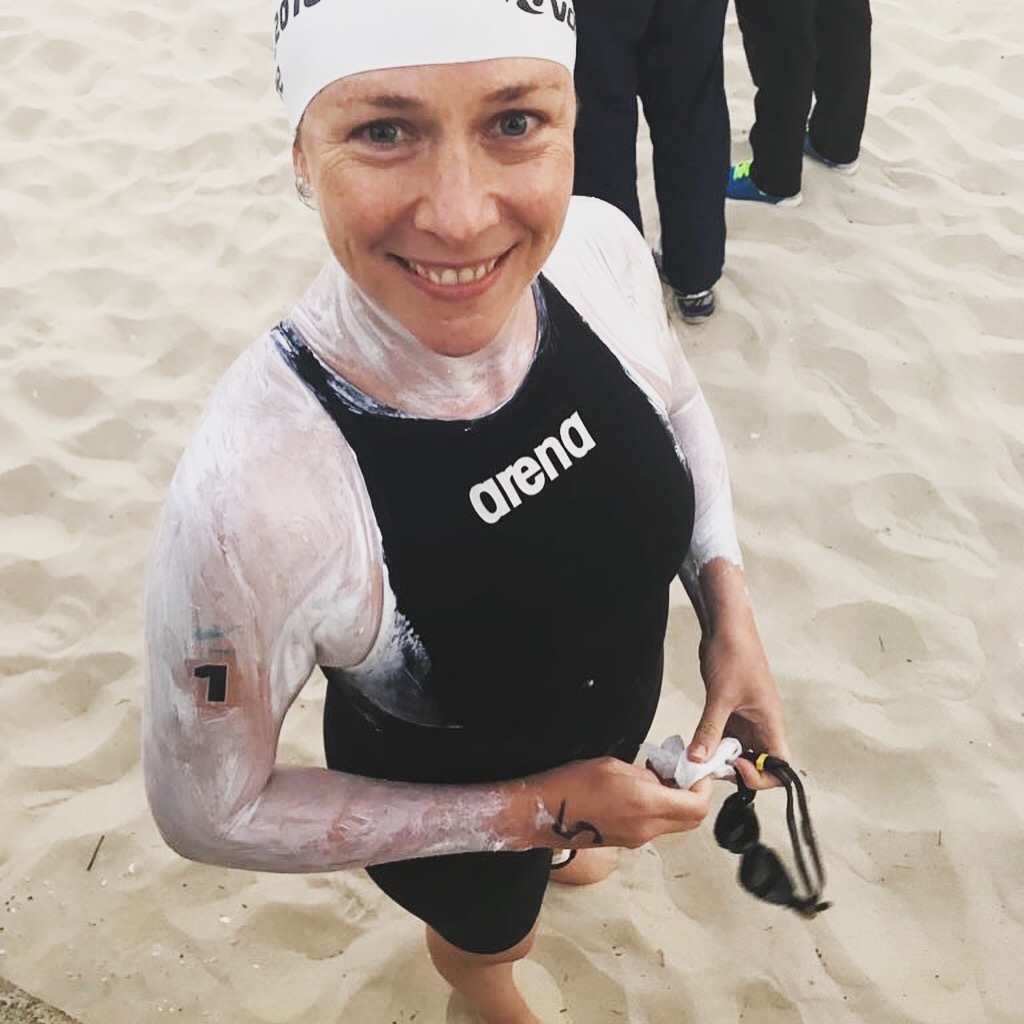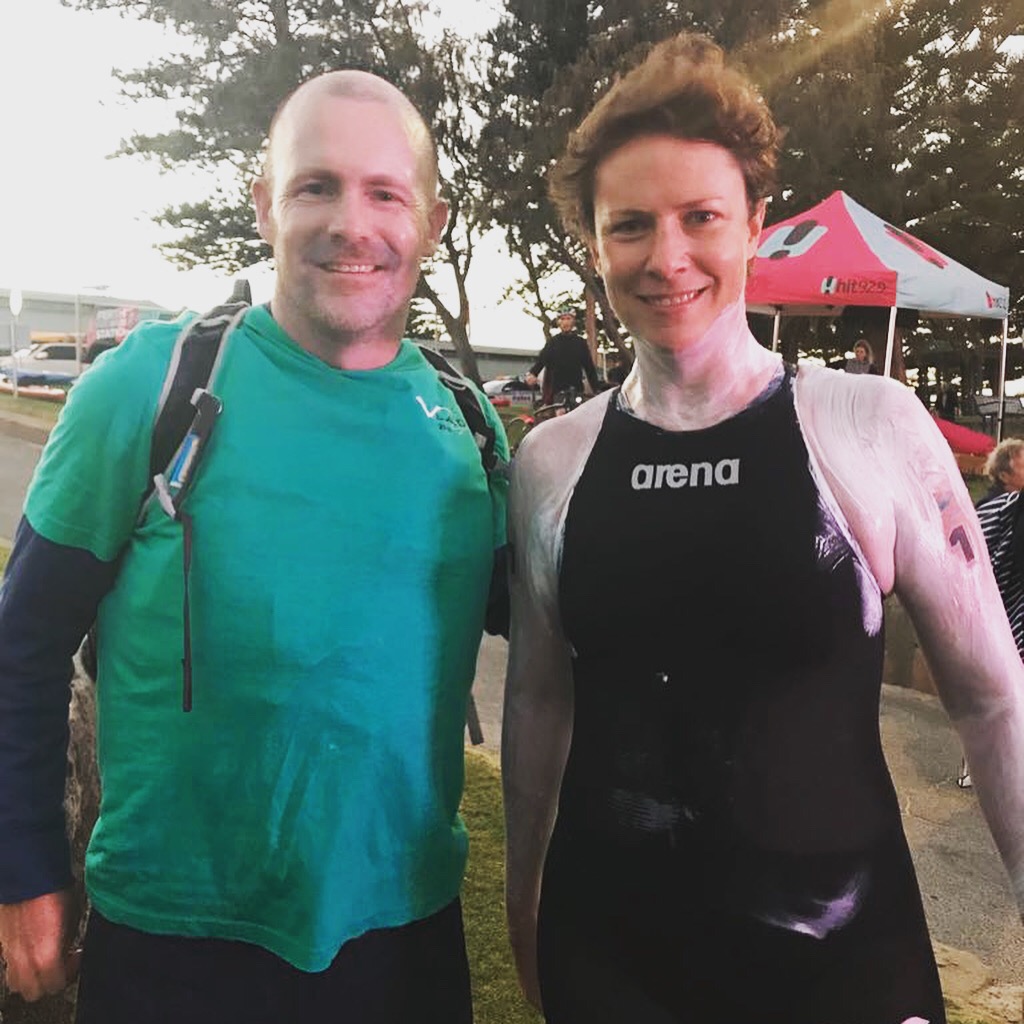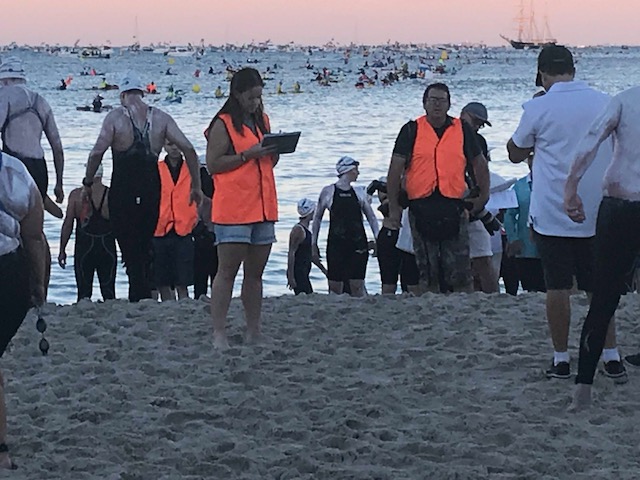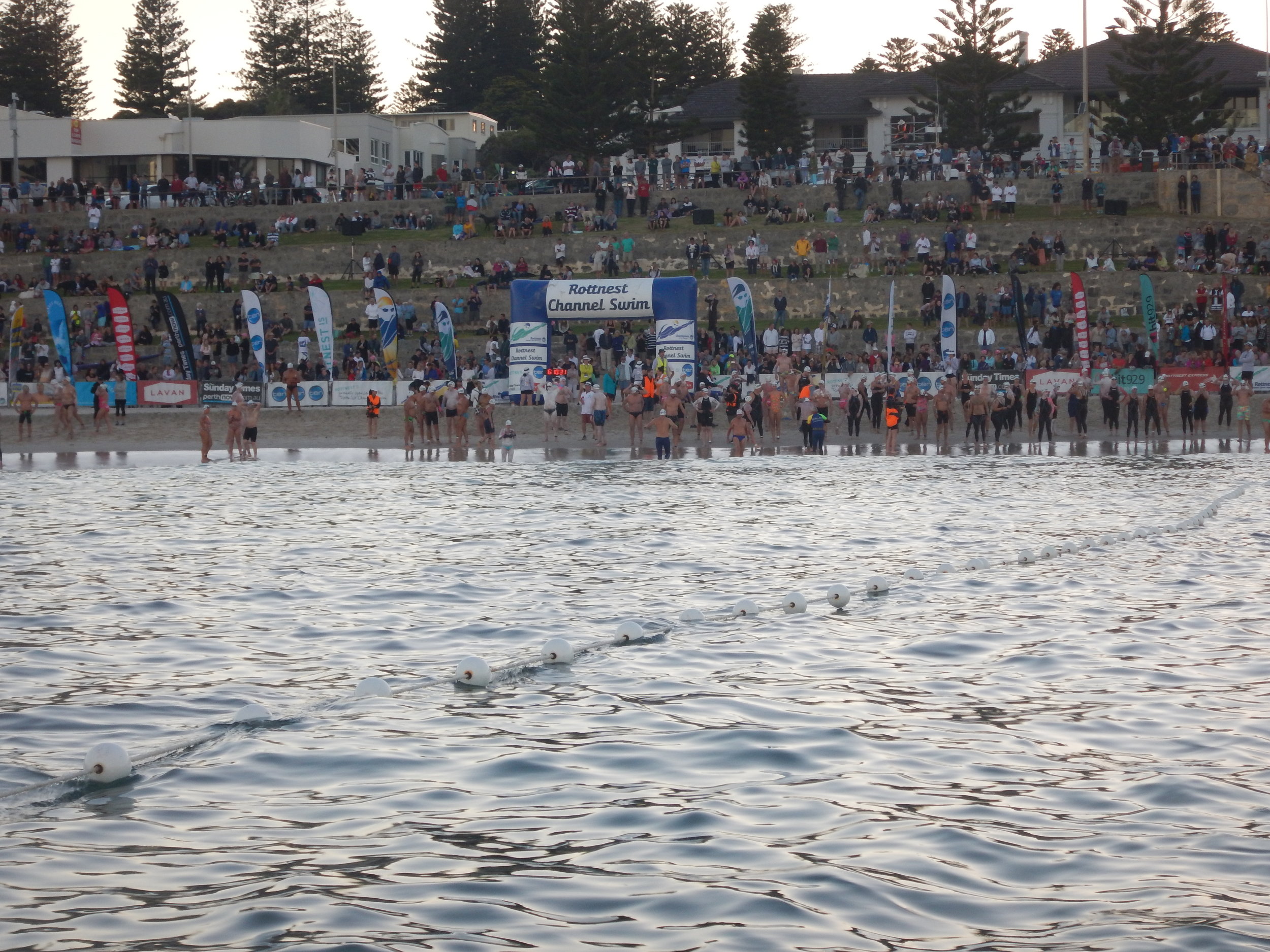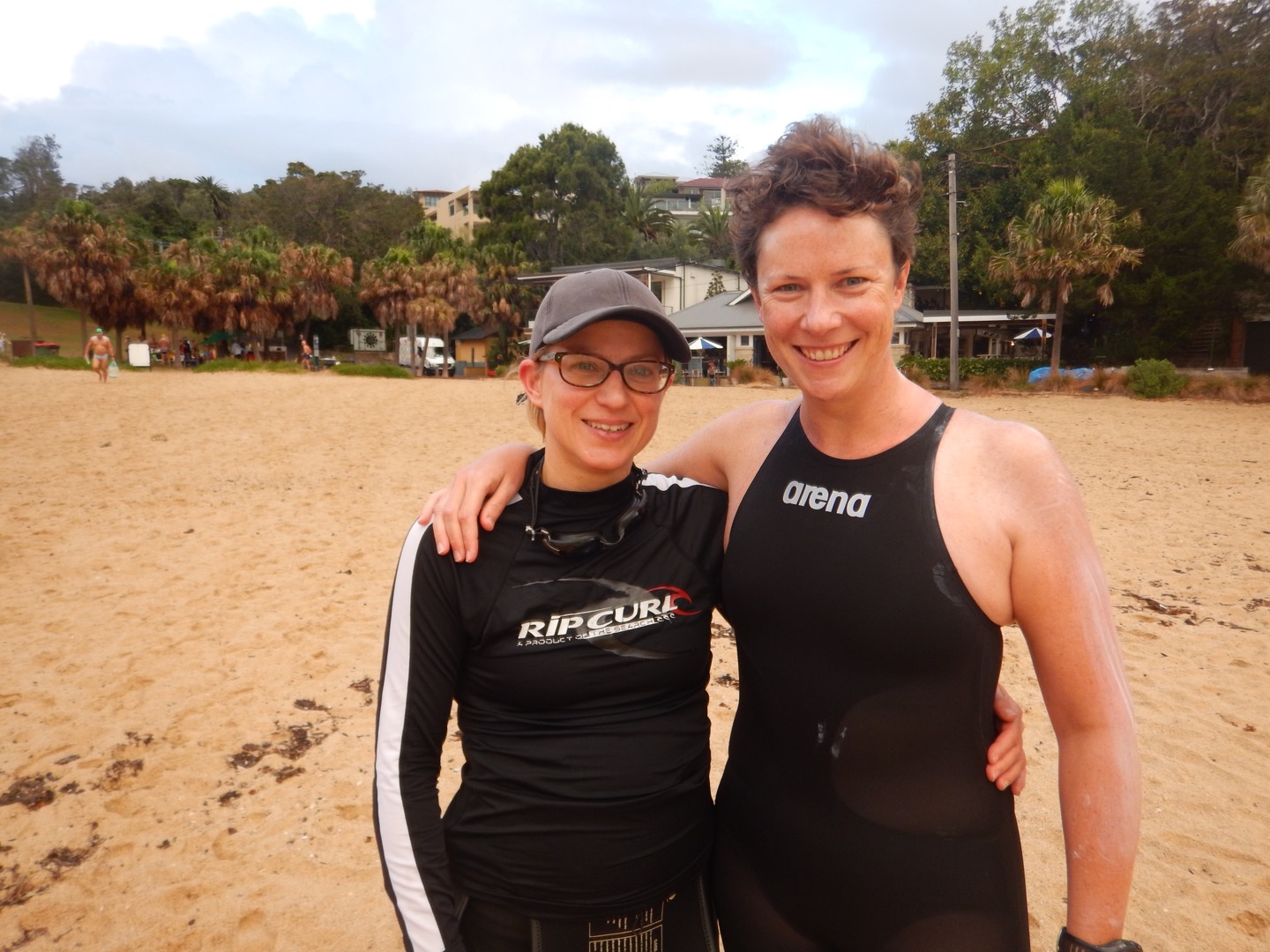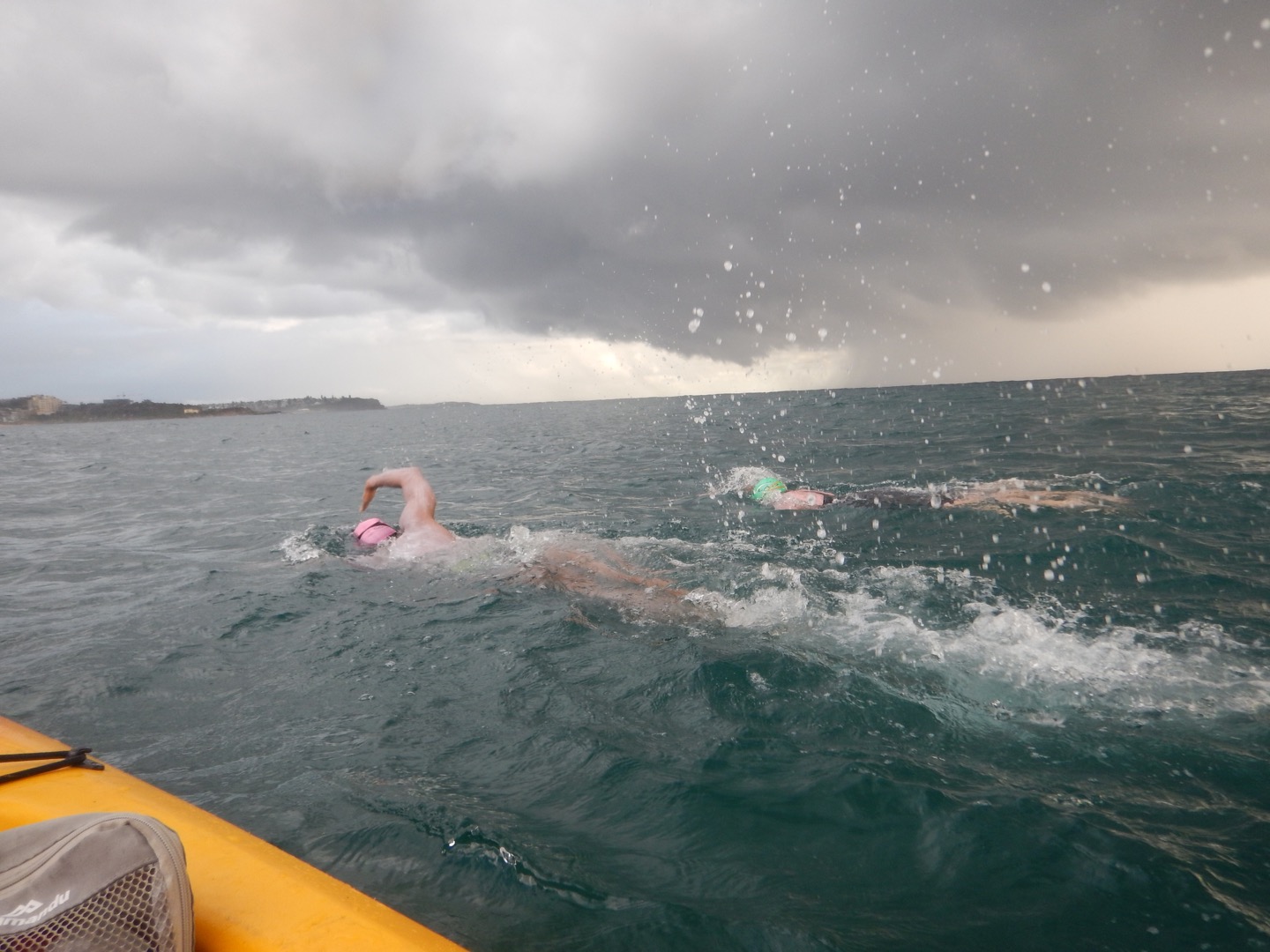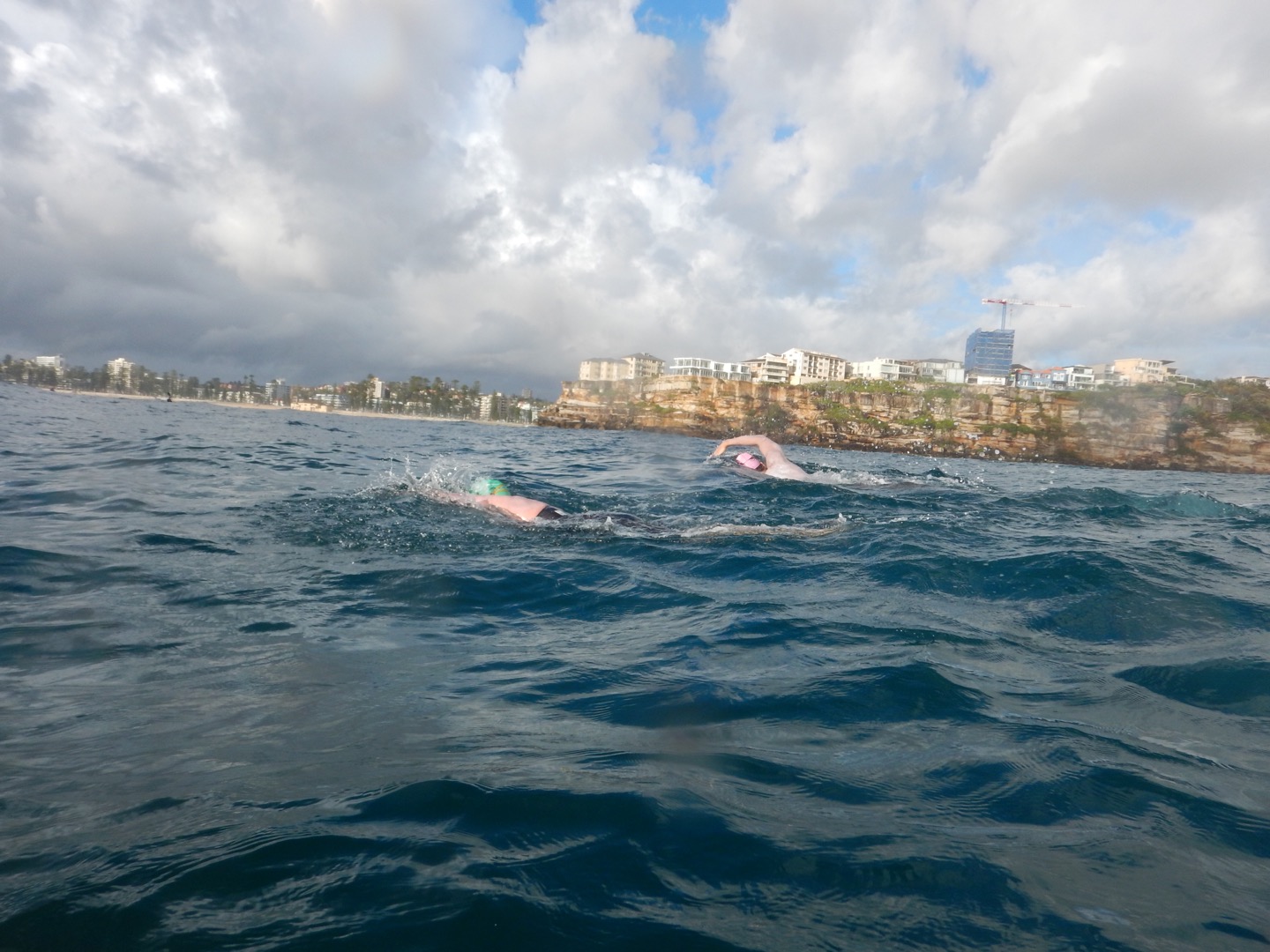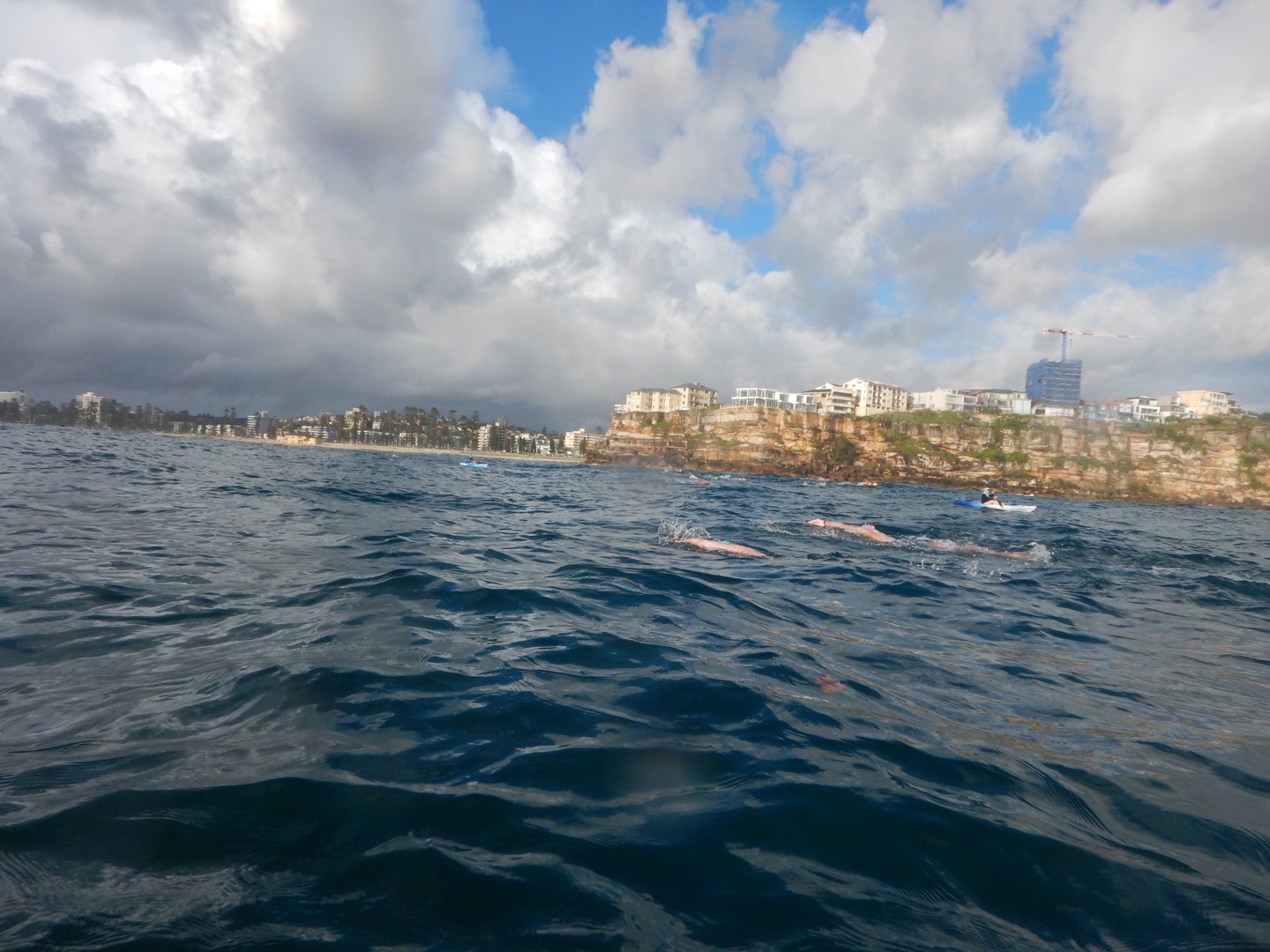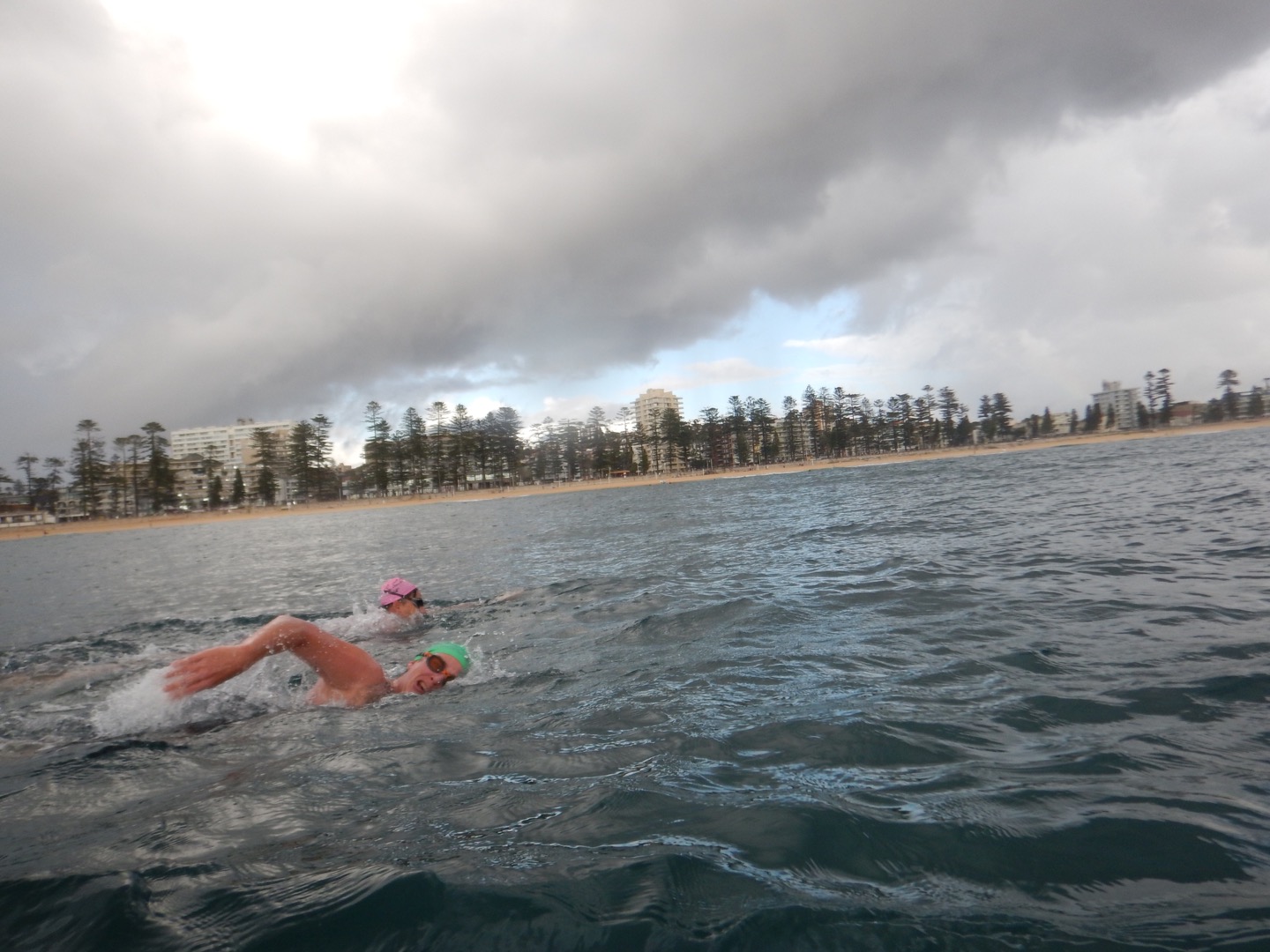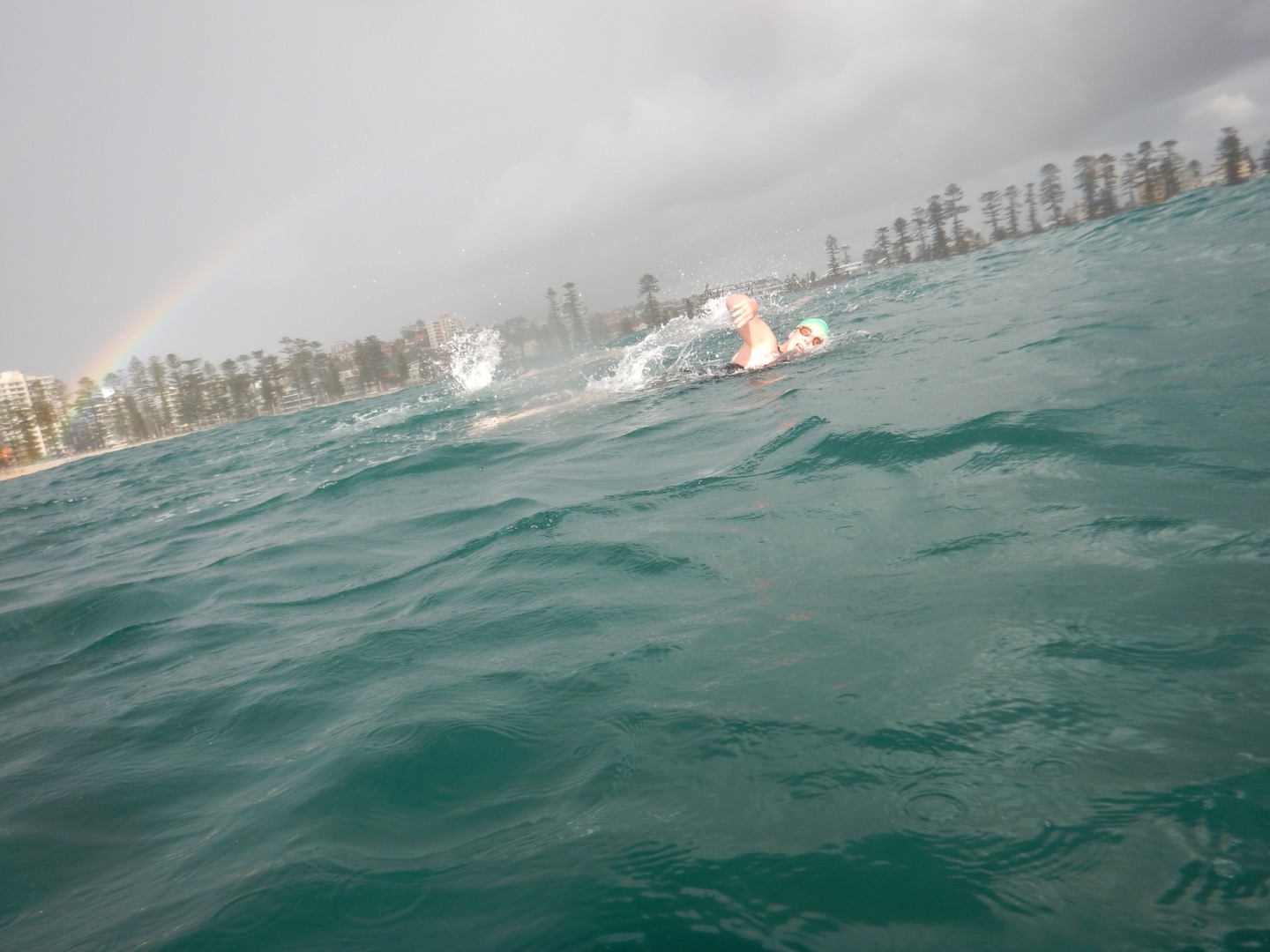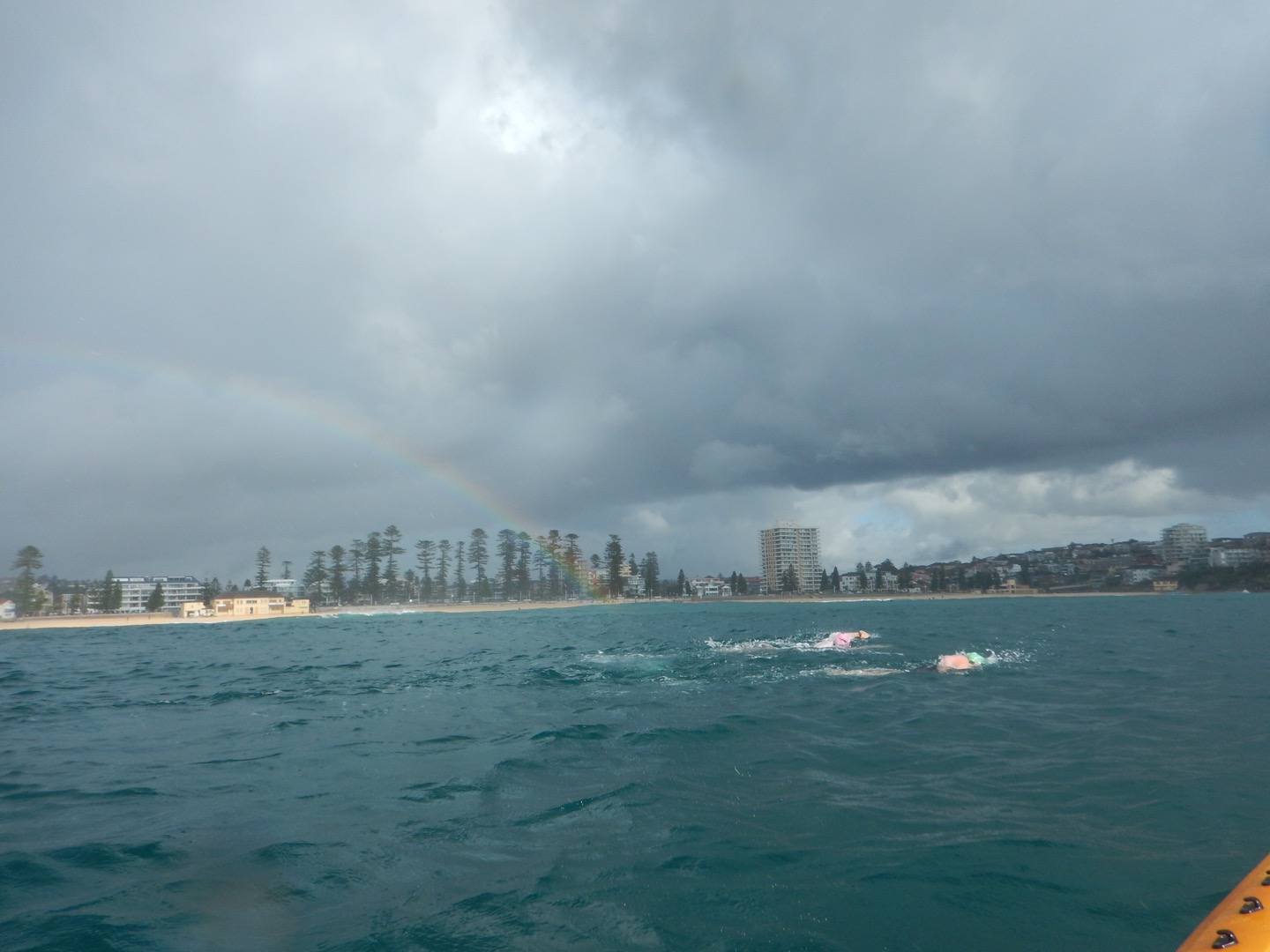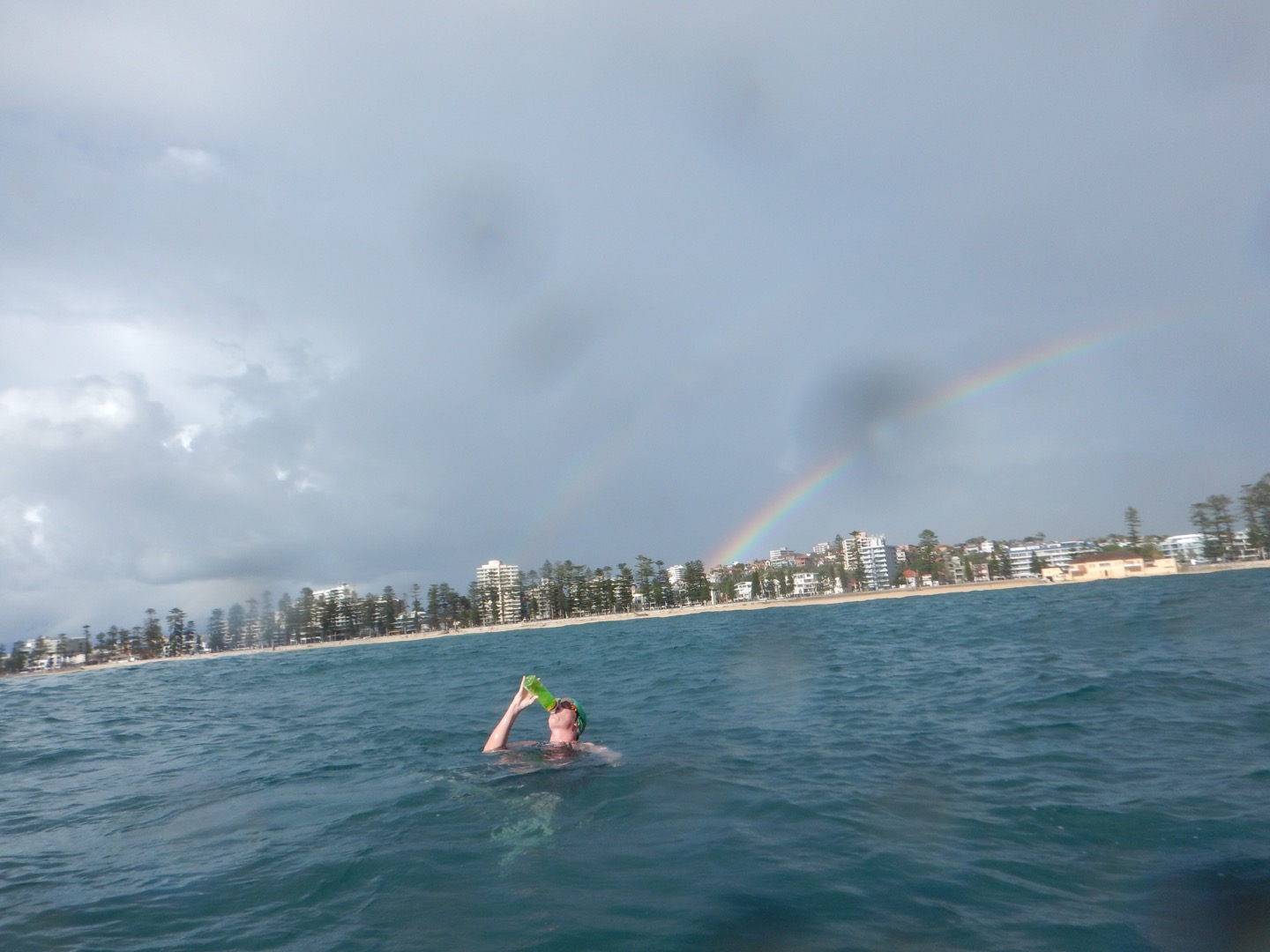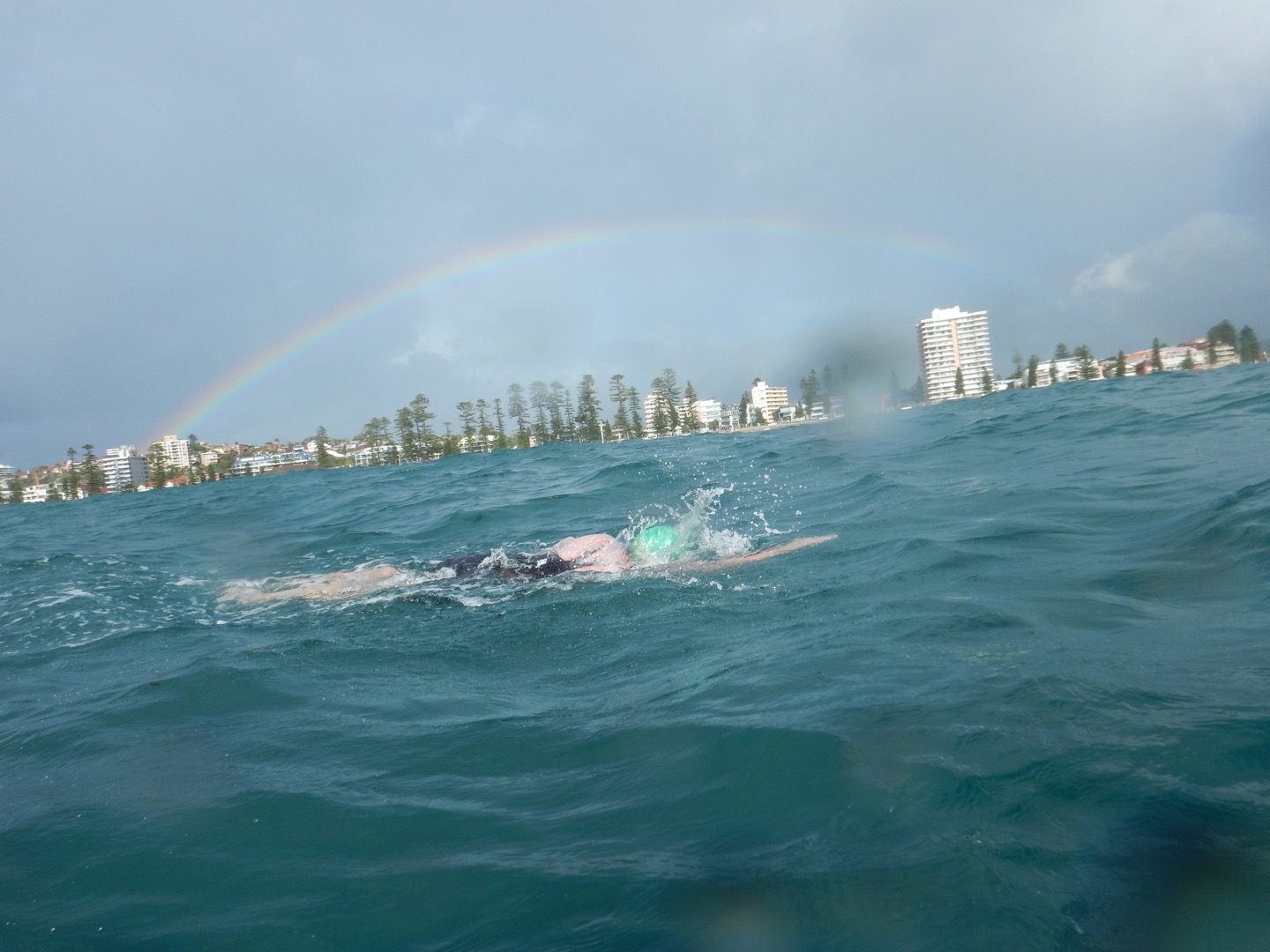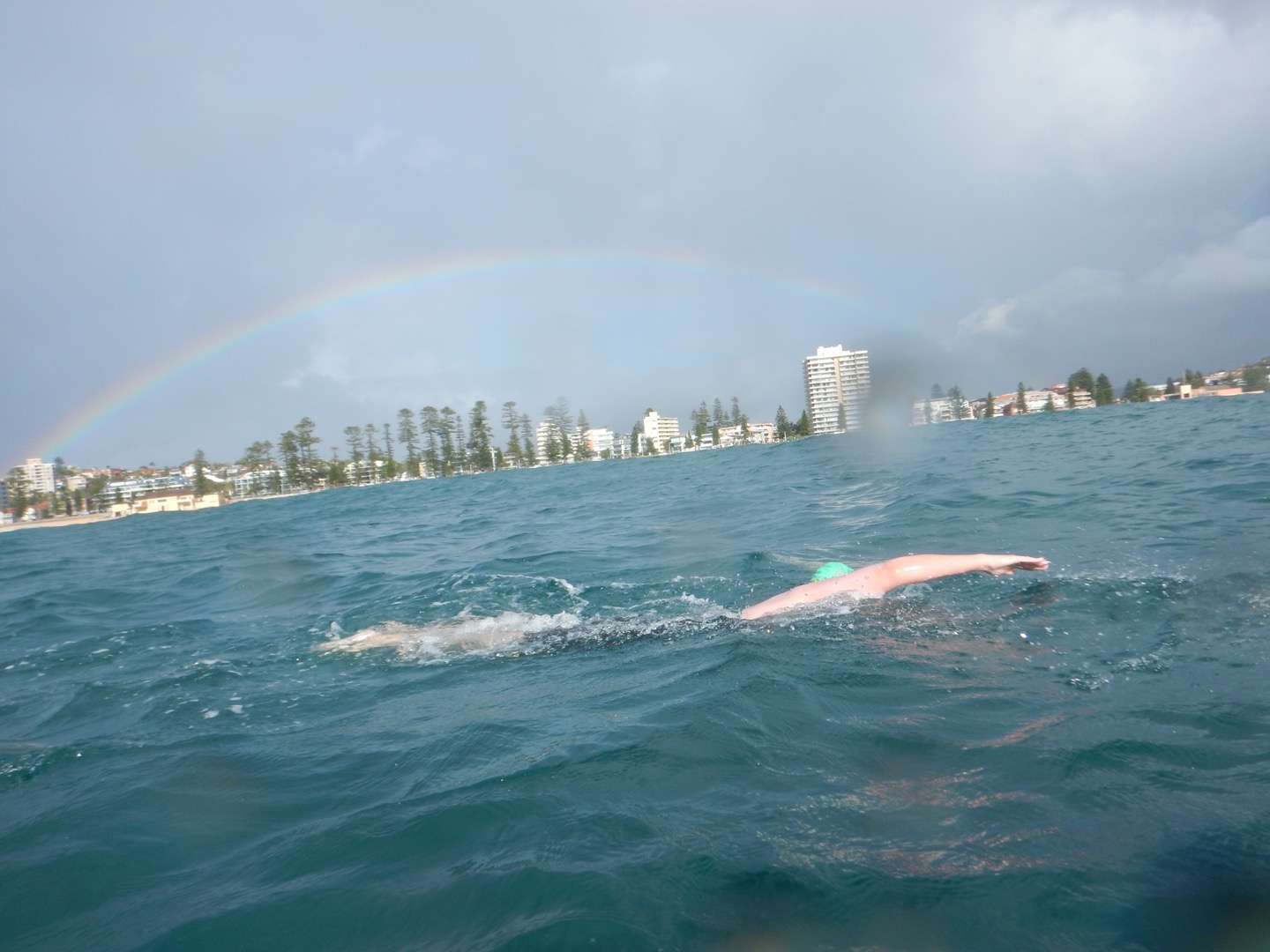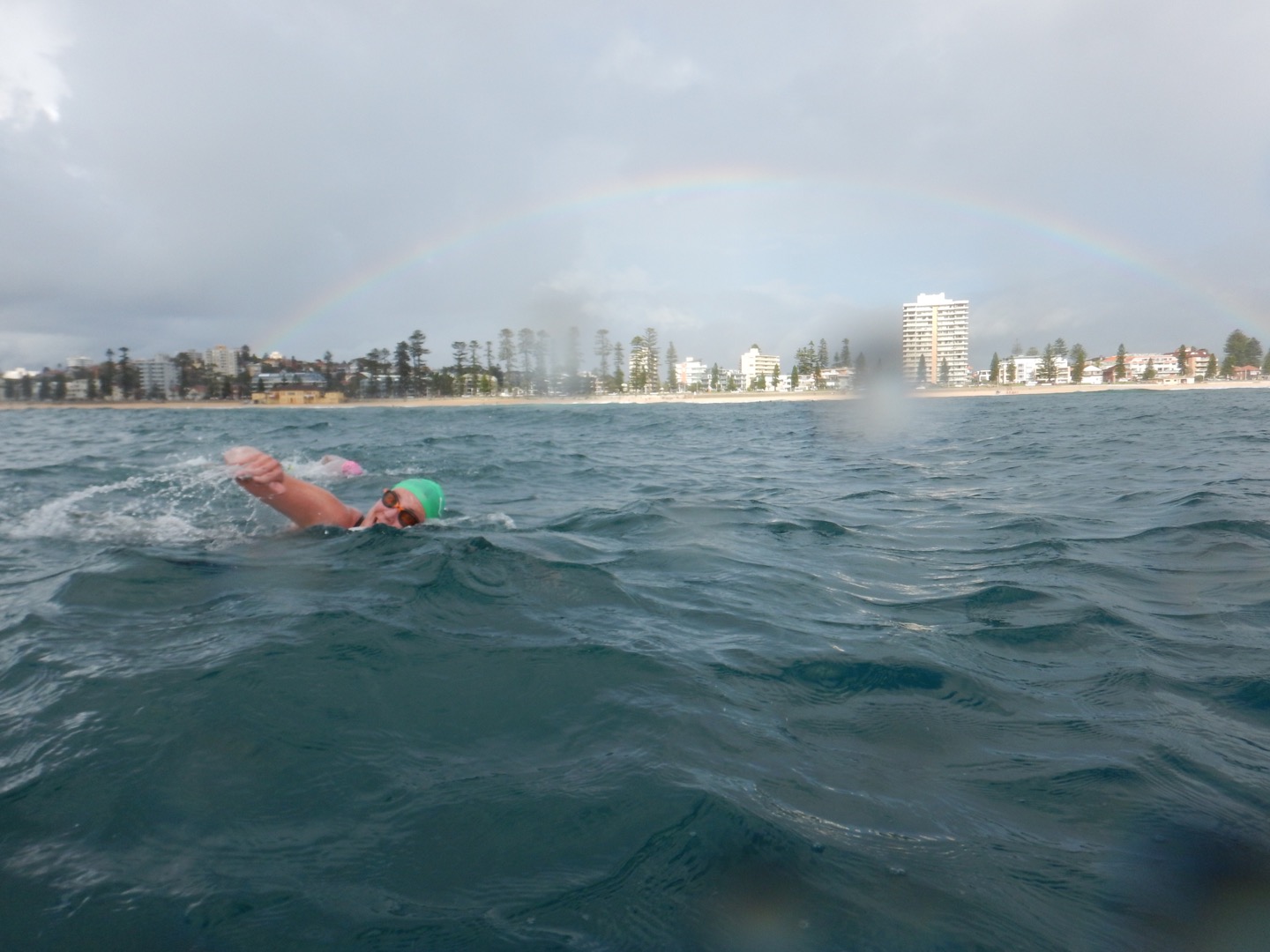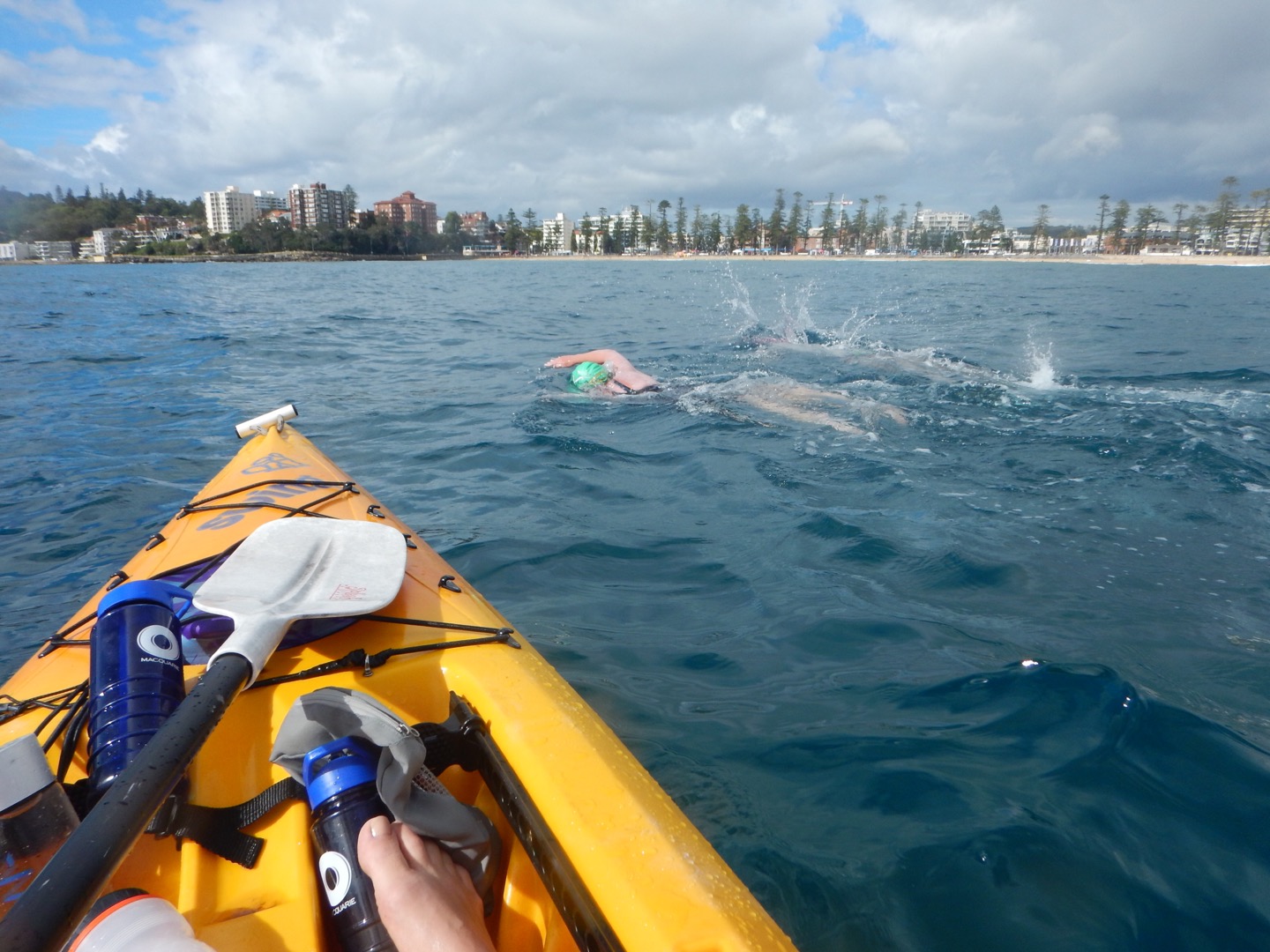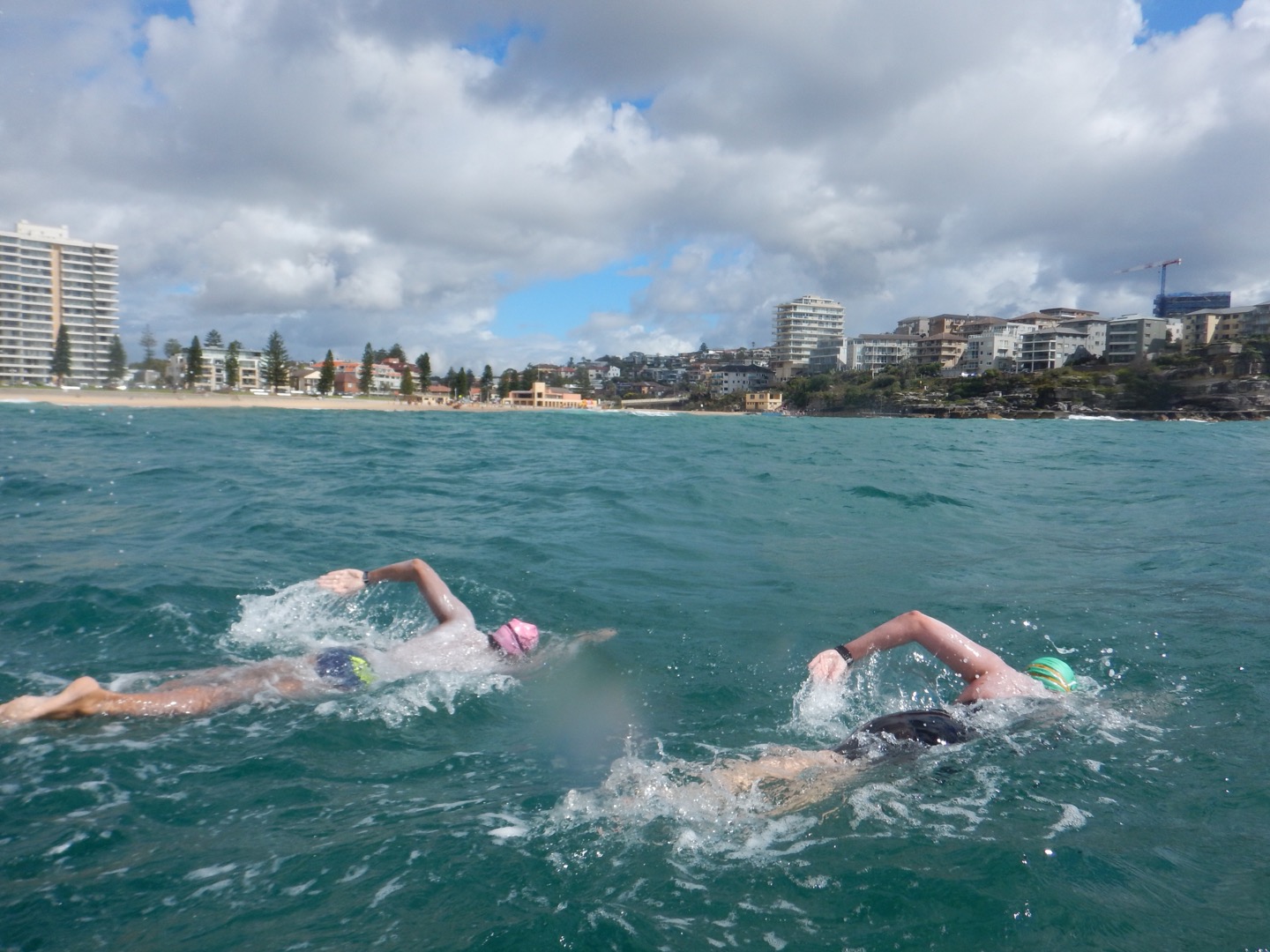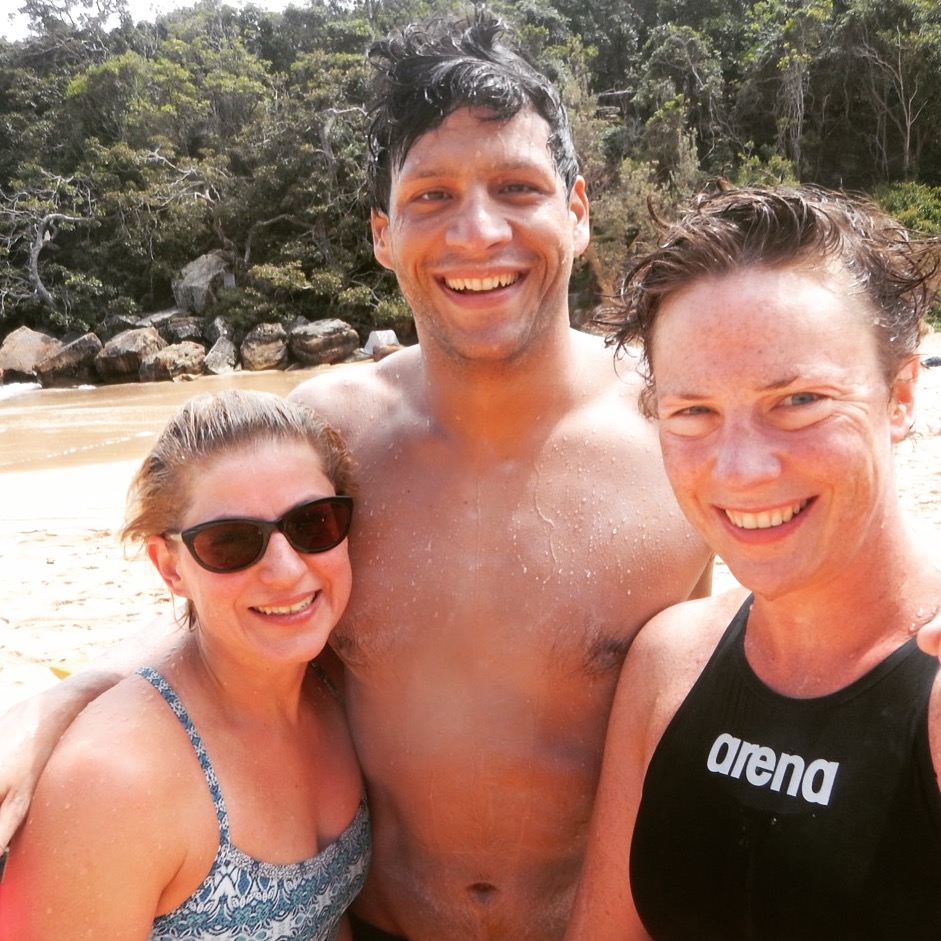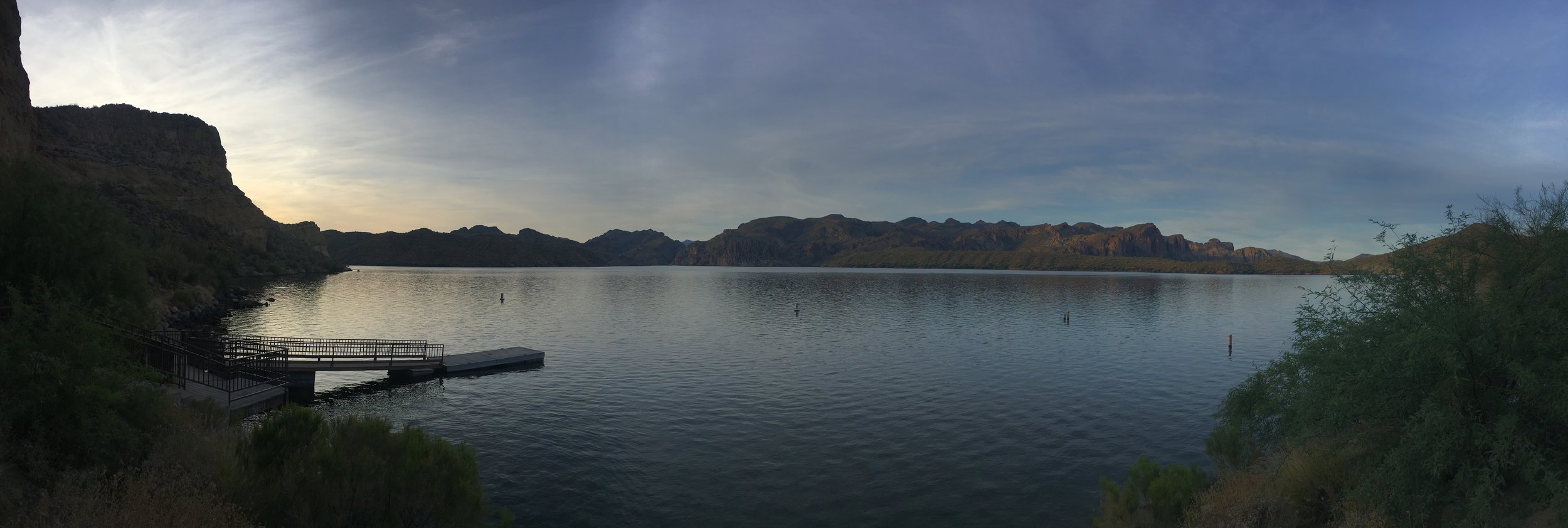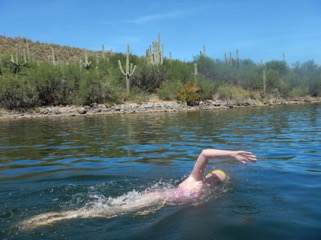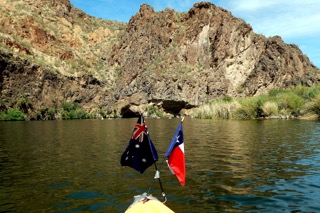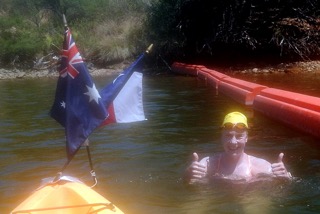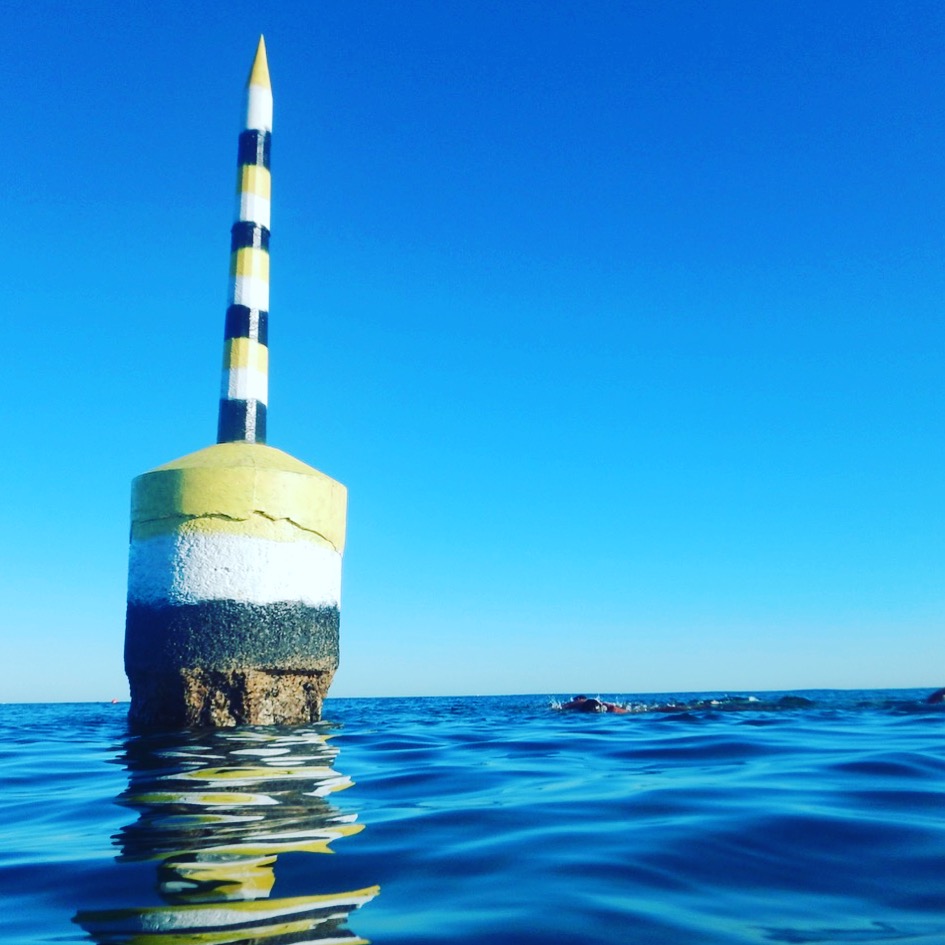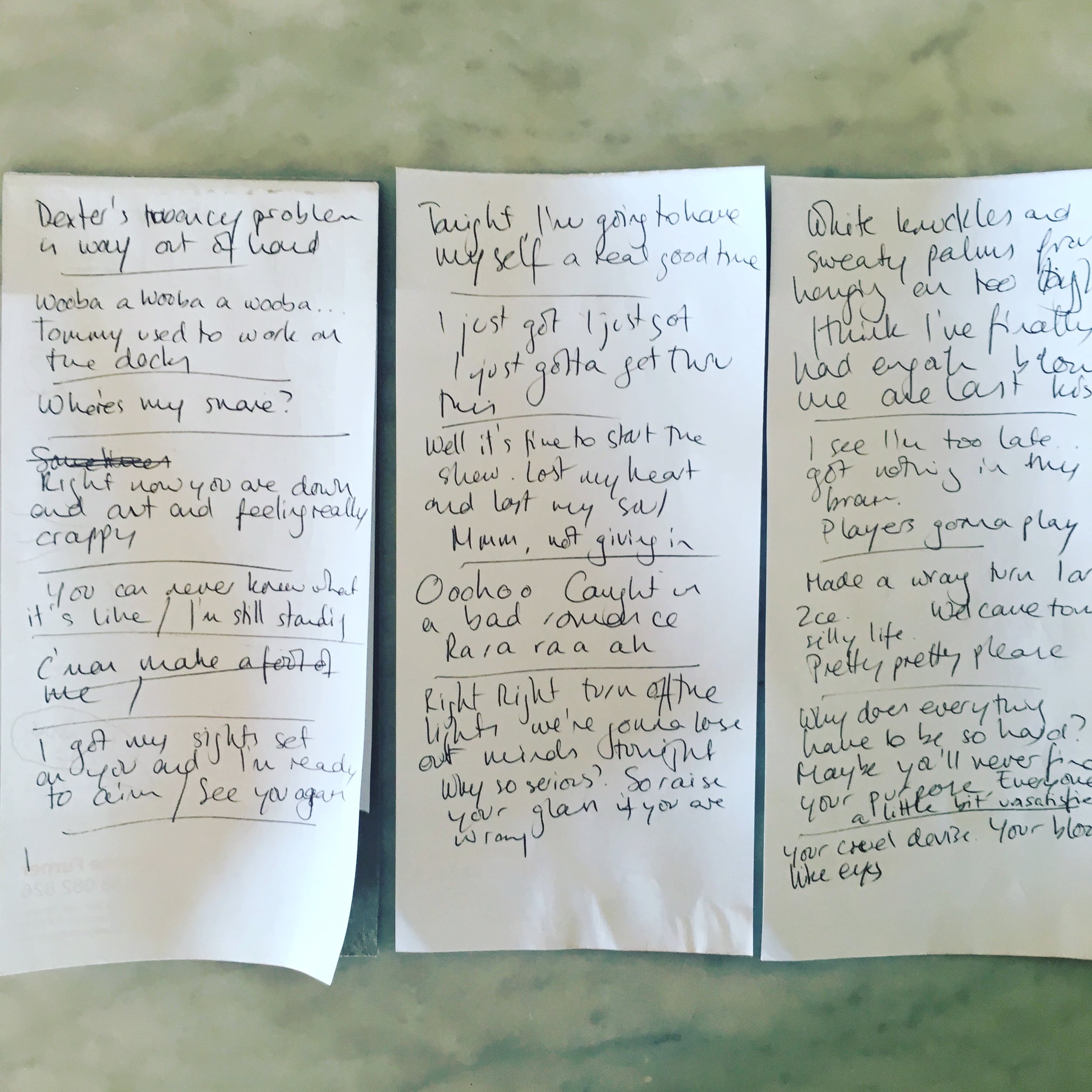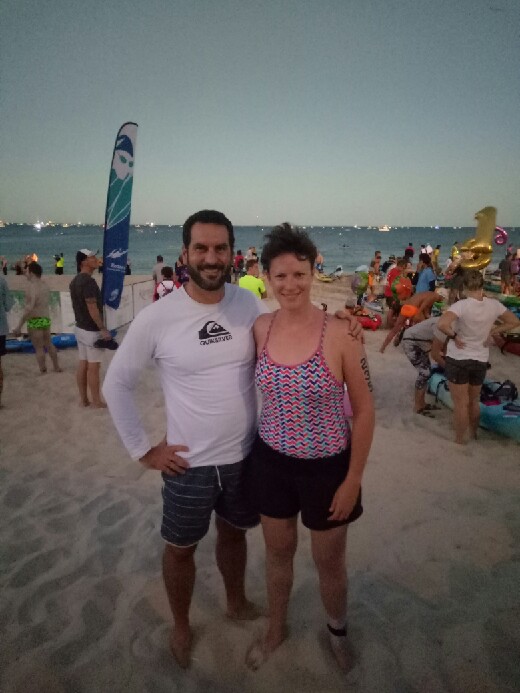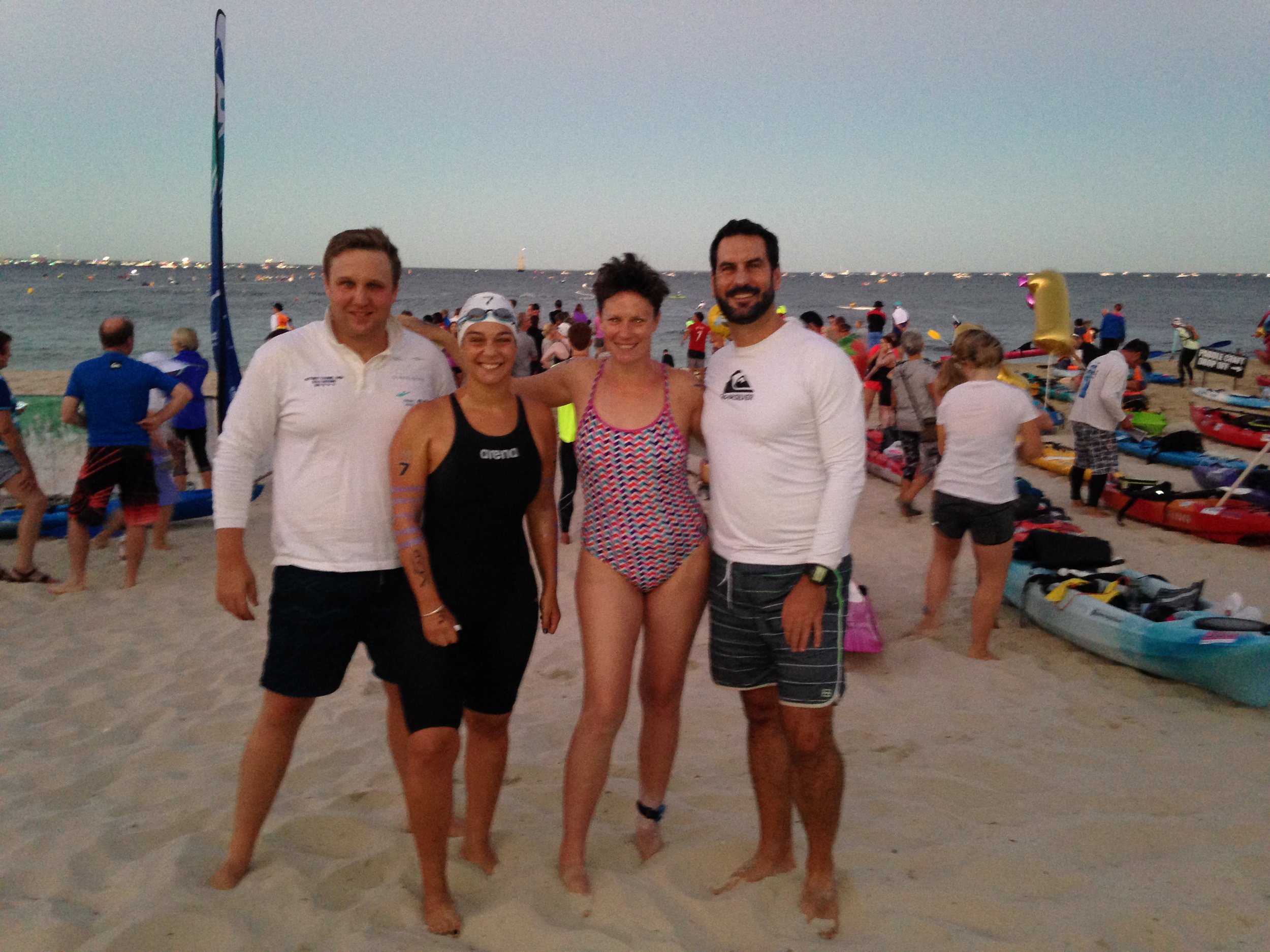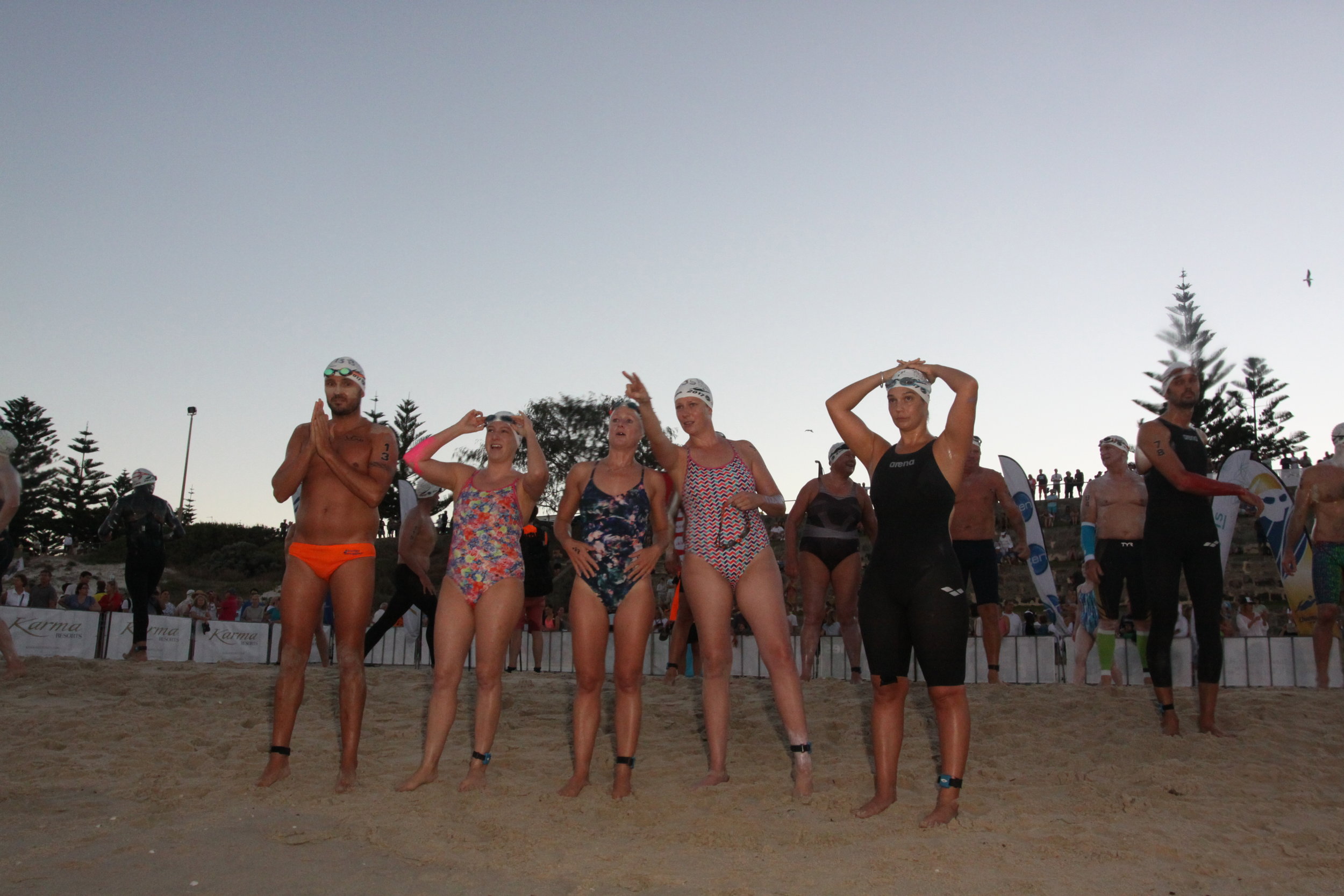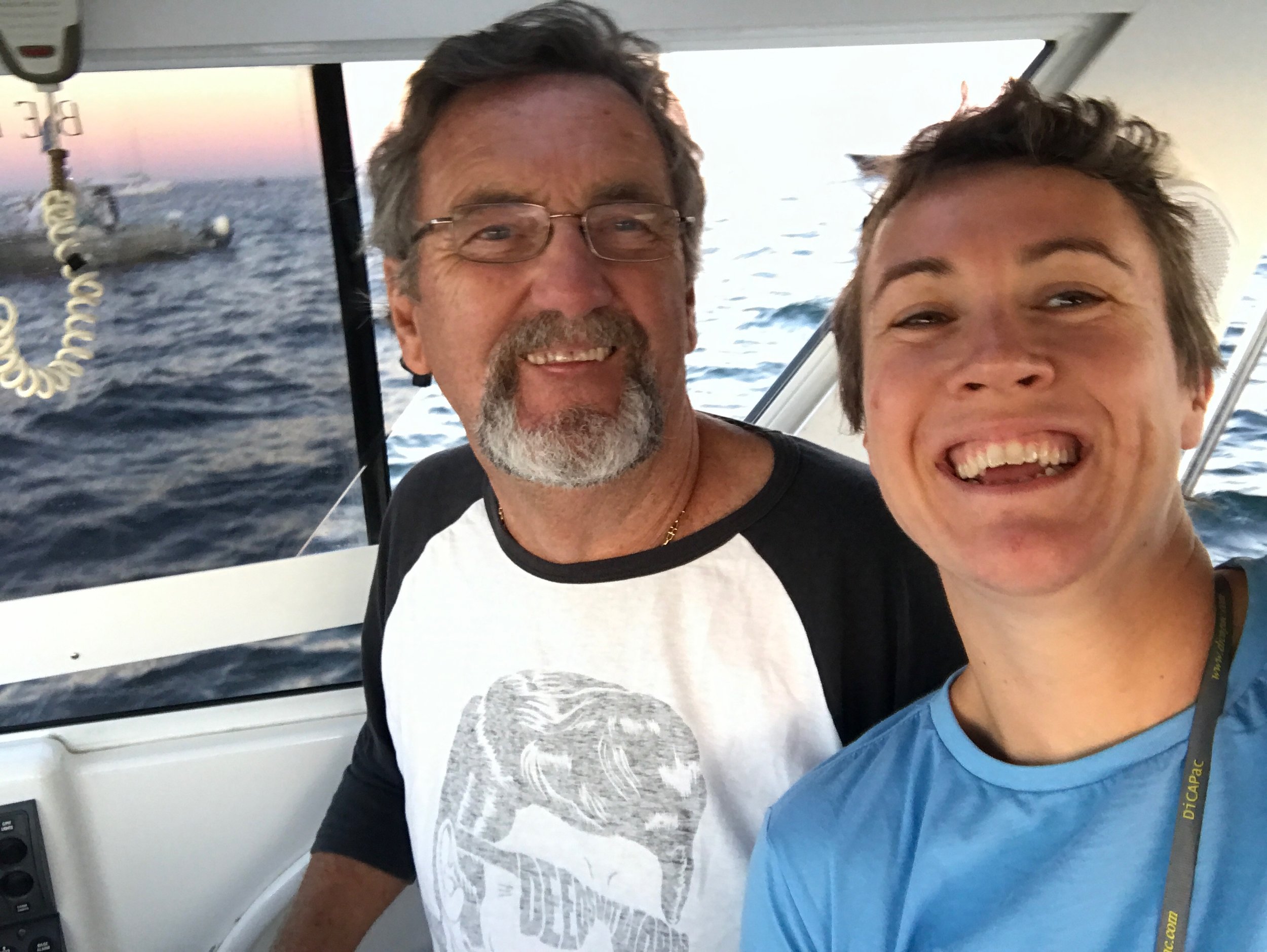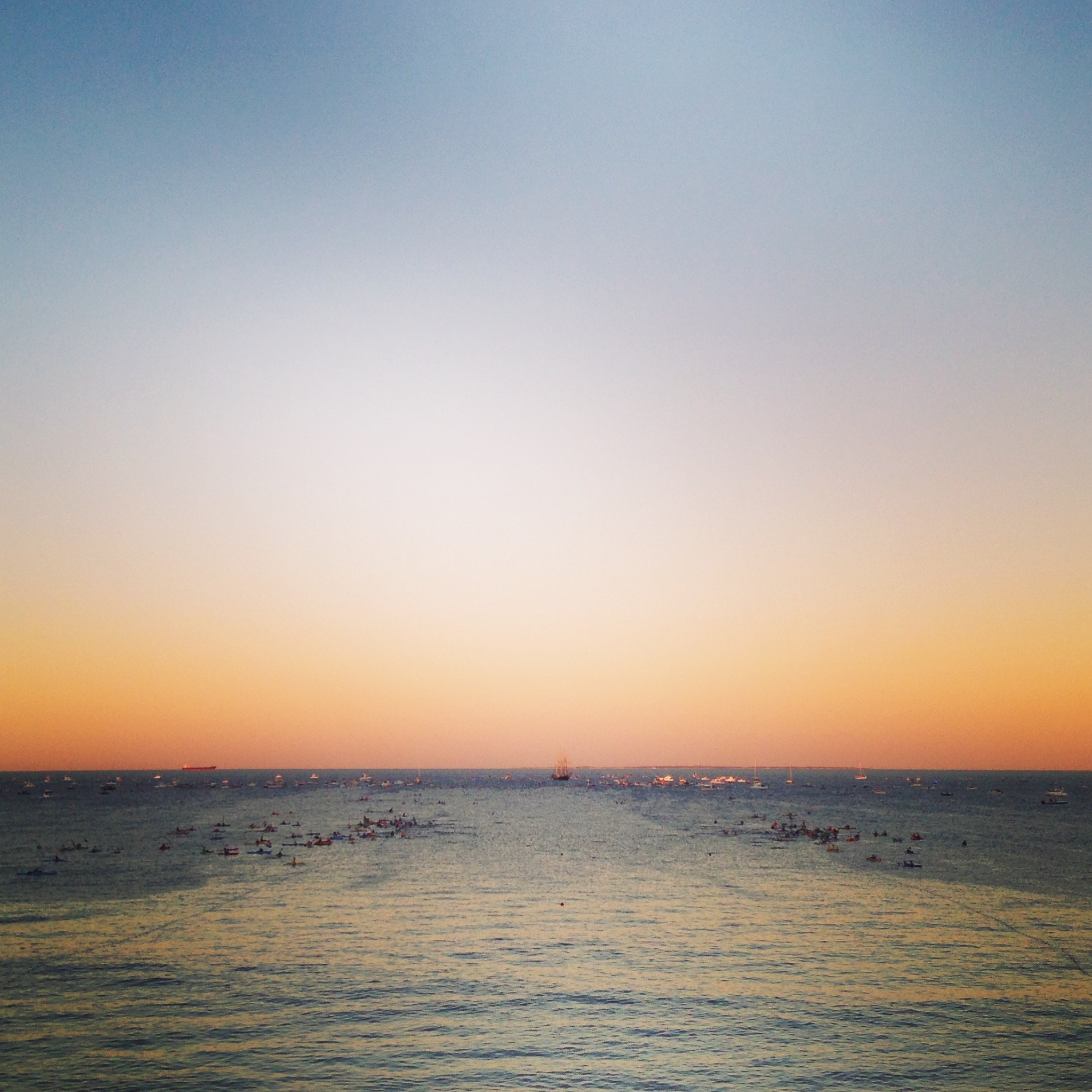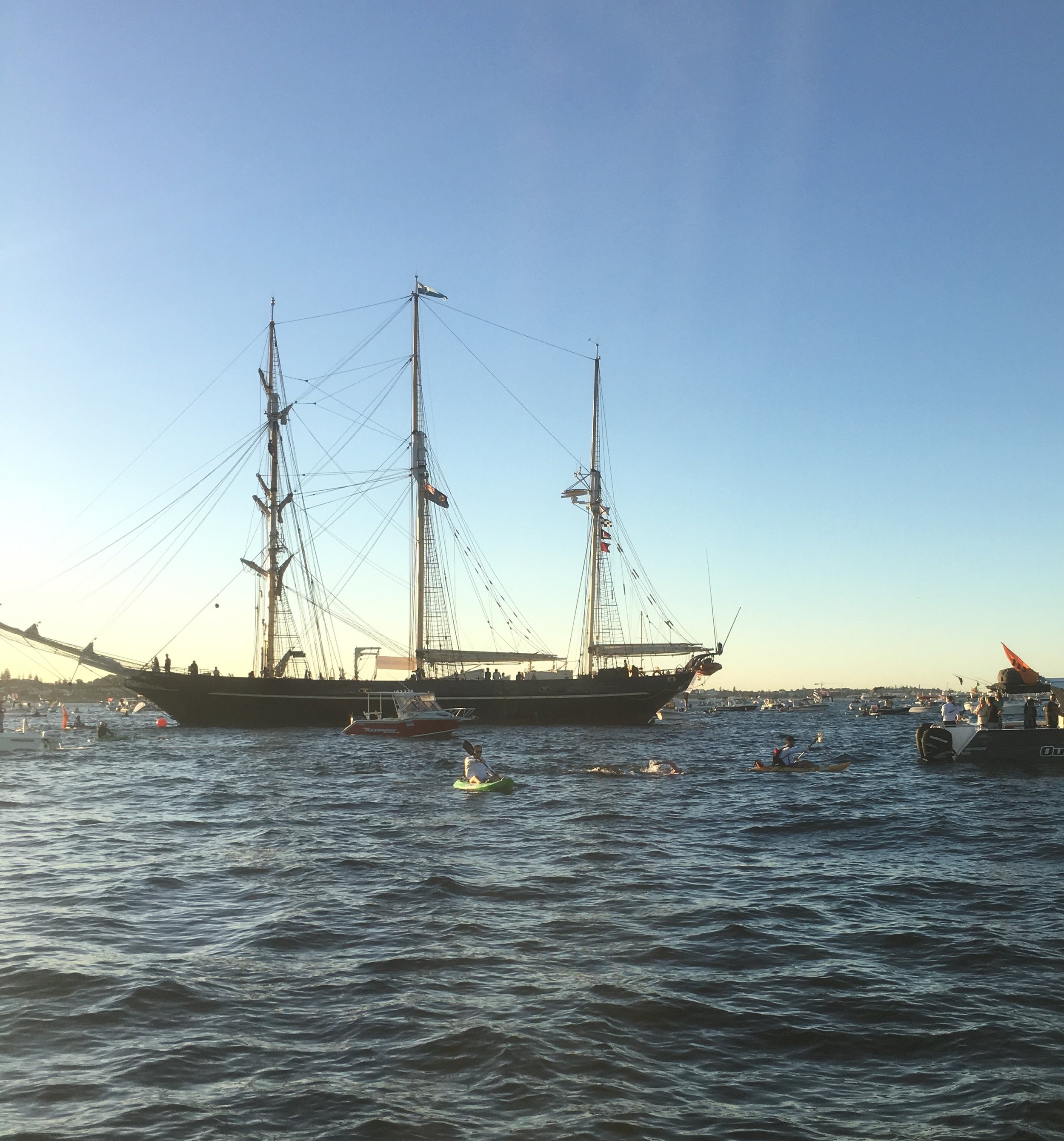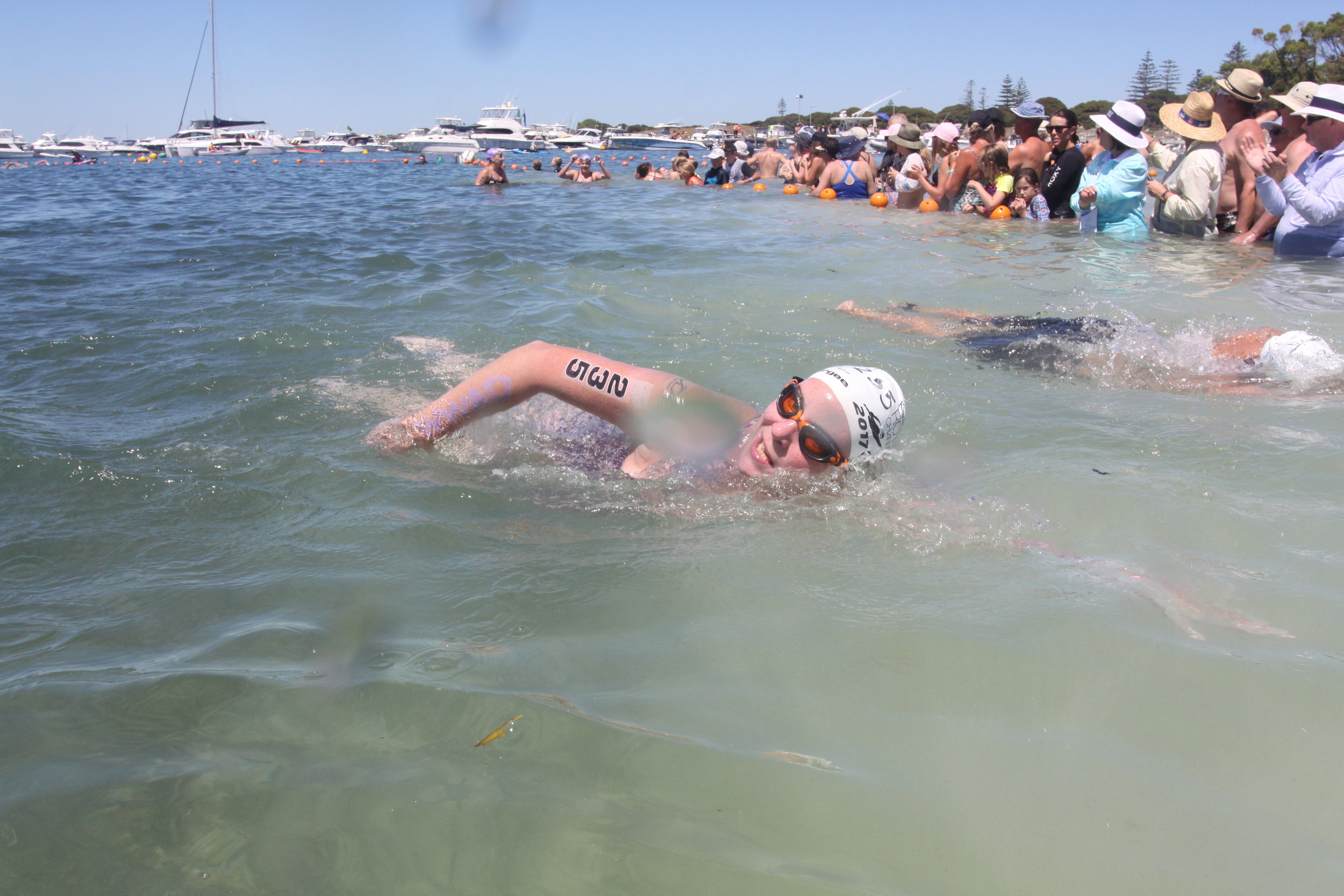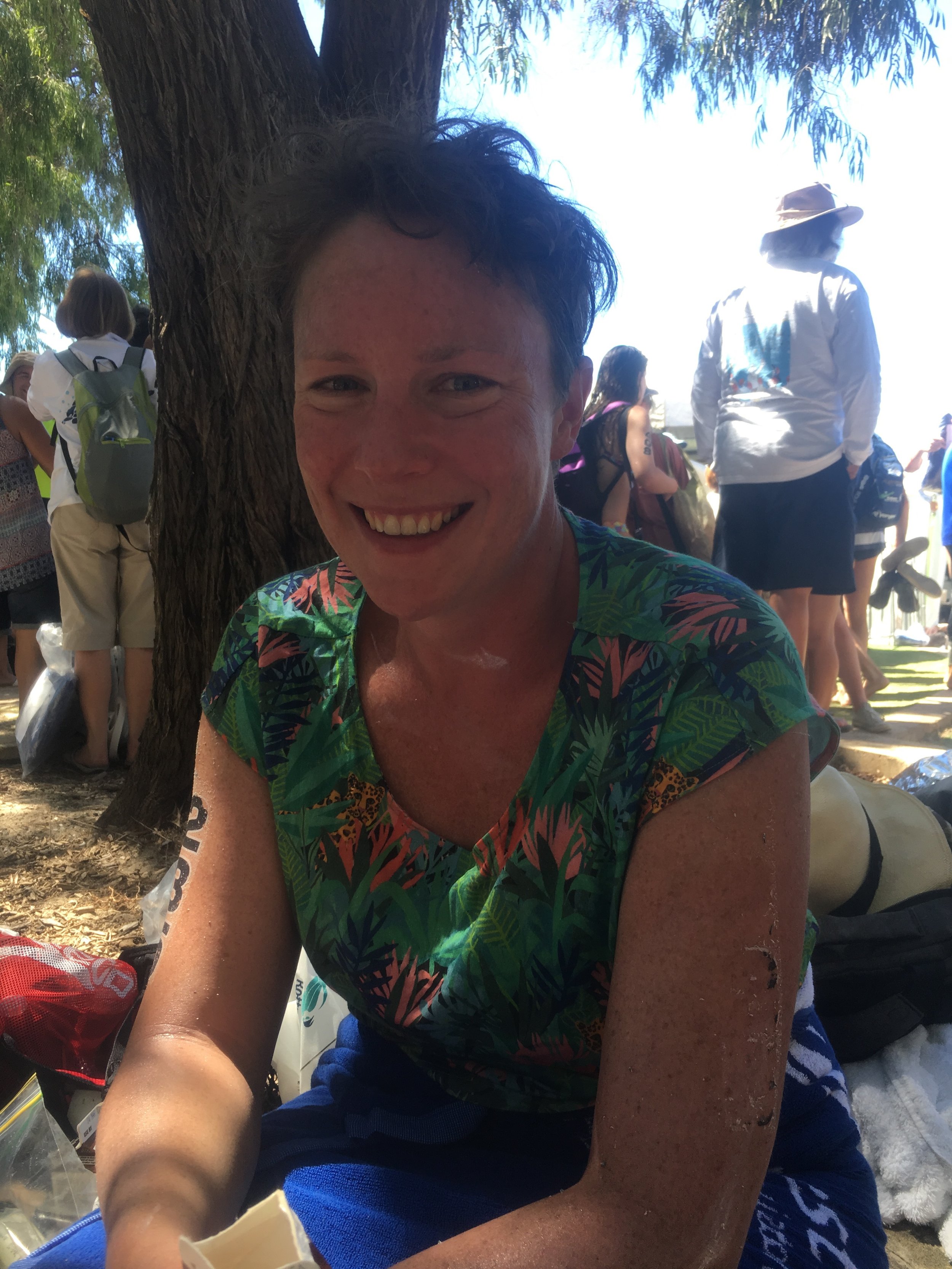I touched down in Perth on the Thursday morning before the Rottnest Channel swim at almost exactly the same time as Helen, who was travelling from Melbourne. We congratulated ourselves on our “exemplary synchronization”, arranged to meet at baggage carousel 2, only to find that we were at separate terminals, 14km apart. Not an insurmountable problem, but not exactly the plan, either.
Perhaps I should have considered this an omen.
The race was, without doubt, a mental, more than a physical challenge for me. I swam the first 7km in 2 hours, which was right on track for our target of a sub-6 hour race (3.5km/hr). I was feeling great, swimming strongly, and was pumped. But I didn’t pass the 10km buoy until about 3.5 hrs. My speed had dropped to 2km/hr.
The maths just didn’t make sense to me. I tried to think of possible explanations. Convinced we were going in the wrong direction, I checked to see if I could see the sun when I breathed to the left… No sun. To the right… No sun. So the sun was behind me and I was swimming west. Captain Dave and Paddy the Paddler were doing their jobs perfectly.
So the only logical explanation I could think of was that I was a terrible swimmer. I had been over confident. I was rubbish. It did not occur to me, even momentarily, that everyone was having a tough swim.
In fact, strong currents were slowing everyone down. Paul Newsome has given a good overview of what happened here. The average time for soloists increased from 6 hrs 55 mins in 2016 to 7 hrs 50 mins in 2017 – almost a full hour slower. 286 soloists started, only 230 finished, with withdrawals due to hypothermia, sea-sickness, and not making the cut-off points within the allowed time. Almost a third of the female field pulled out.
Coming in at 7 hours 9 minutes, I was 40 minutes slower than last year, and an hour slower than I had hoped. When I arrived on the island, I could only find a few friends – all fast swimmers. My messed up mind concluded that everyone else had already taken the ferry back. It took another couple of hours for me to realize that it had been a slow race.
Now that I can look at the cold, hard data, I’m delighted with my swim. I kept my brain busy with songs, my feeding went exactly to plan, and I didn’t stop swimming until I could stand up. My shoulders got sore, so I’ll have to work on strengthening and stretching them, and I got a pretty bad headache, so I’ll have to make sure I’m getting enough liquid and my technique isn’t messing up my neck. But most importantly, I’ve now learnt not to trust my water-addled brain. Next long swim, I’ll just concentrate on turning my arms over until I’m on dry land, and won’t worry about other swimmers or the time.
Rachelle framed her experience so admirably, demonstrating a real turn-around: last year it was heartbreaking to see her drag herself to the after-party angry, disappointed, and barely wanting to acknowledge the swim (even though she had just completed her longest swim ever). She came out of the water this year beaming, absolutely beaming. It didn’t matter that the time was slower. She was over-joyed that her feeding went well, that she didn’t go to any dark places, that she (mostly) didn’t lose her temper at her amazing mum or husband, and most importantly, it gave her even more time in the water. It was brilliant to see her so happy, and to recognise that how you frame your swim is all-important.
I have so much respect for the new Rottnest soloists. The race is seen as the gateway drug to longer swims, but it was a bloody hard swim. I hope they’re not discouraged. (One a similar topic, apparently cold water is the gateway drug to crack).


